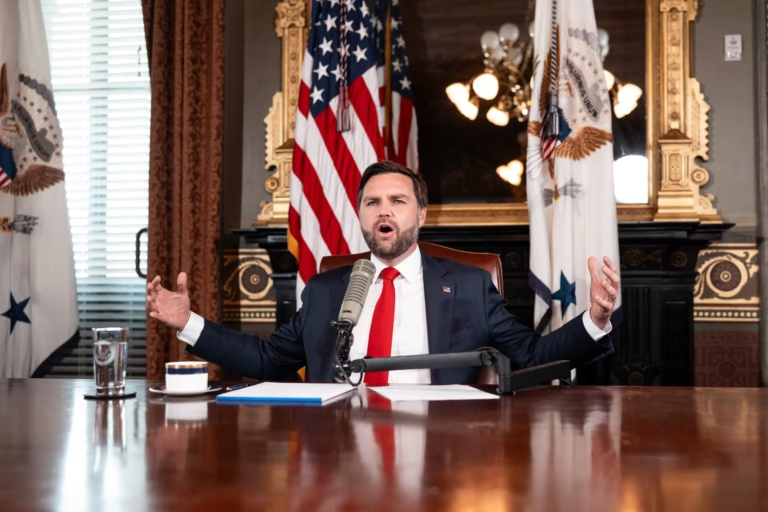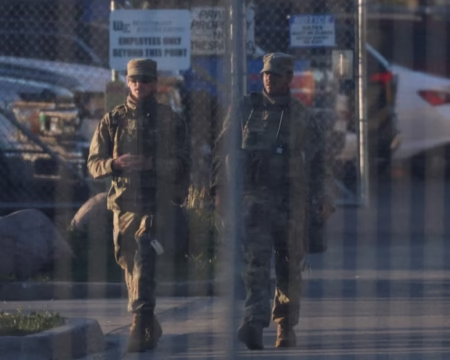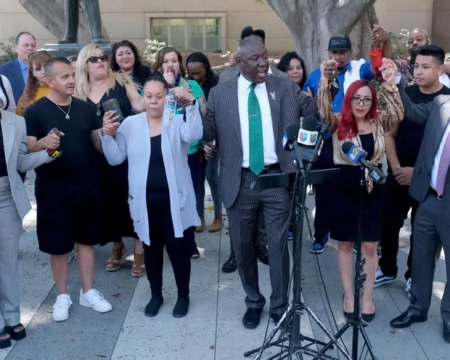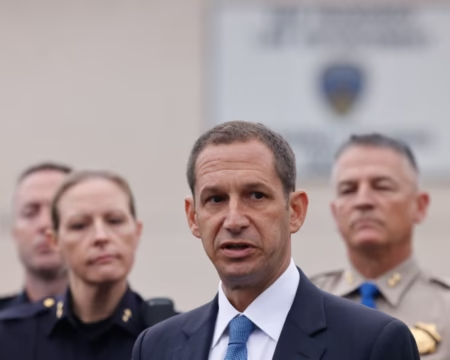The memorial for conservative activist Charlie Kirk is set to take place this Sunday in Arizona, drawing thousands to a packed football stadium. While the event is meant to honor Kirk’s life, critics worry it could become a stage for Donald Trump to escalate his campaign against political opponents.
For many, the 31-year-old’s death has sparked deep grief. Kirk, a leading voice for conservative youth and a close ally of Trump, was fatally shot on a Utah university campus. Authorities have charged 22-year-old Tyler Robinson with murder and said he acted alone. Still, Trump and his allies continue to link the tragedy to broader political forces on the left.
Trump has spent the past ten days warning about what he calls the “radical left.” His administration has floated new measures, including classifying some activist groups as domestic terrorists and revoking tax exemptions for certain non-profits. None of these organizations have been tied to Kirk’s killing. Critics say this approach risks turning grief into political gain and could threaten free speech.
Scholars and political observers warn the rhetoric follows patterns seen in authoritarian states. Steven Levitsky, a Harvard political scientist, explained that many regimes use episodes of violence as a pretext to curb freedoms. He compared Trump’s recent language to strategies used in South America during the 1970s when leaders seized on tragedy to justify crackdowns.
Trump’s closest advisers have also fueled concerns. Stephen Miller claimed there was an organized campaign behind Kirk’s death, though he provided no evidence. Speaking with JD Vance, who guest-hosted Kirk’s program from the White House, Miller said the administration would use “every resource” to dismantle so-called terrorist networks. The vice president accused “far-left crazies” of undermining security, while Attorney General Pam Bondi warned that radicals would be held accountable. After backlash, Bondi clarified that the government would only target threats crossing into violence.
Many critics believe these comments point to a broader effort to silence opponents. Conservative author Charlie Sykes described the strategy as a “classic authoritarian move” to declare emergencies, label enemies, and then use state power against them. More than a hundred non-profit leaders have also spoken out, rejecting attempts to link their organizations to political violence.
Democratic lawmakers have drawn comparisons to past tragedies. Congressman Jamie Raskin noted that when a Democratic leader was killed earlier this year, his party did not blame Republicans as a whole. He called Trump’s rhetoric part of a global playbook used by strongmen to discredit opponents as terrorists. Even some conservatives acknowledge the irony that Kirk himself defended free expression while his death is now used to justify limits on speech.
The impact is already visible. People accused of making insensitive comments about Kirk’s death have been suspended or dismissed from their jobs. Late-night host Jimmy Kimmel was taken off air after Trump suggested regulators should review broadcast licenses. Trump also filed a multibillion-dollar defamation suit against a newspaper, though a judge dismissed it. Observers see these moves as attempts to discourage independent reporting and shape the national narrative.
Trump’s approach to political violence remains selective. He pardoned hundreds convicted over the January 6 Capitol attack, describing them as “patriots.” By contrast, he portrays left-wing activists as an existential threat. This uneven stance fuels criticism that his concern lies more in consolidating power than in preventing violence.
Republican allies in Congress are pushing new laws that would allow the justice department to use anti-racketeering statutes against protesters. Others are demanding investigations into progressive groups to trace their funding. Right-wing commentators have been even more direct, saying Trump should embrace the authoritarian label critics already assign to him.
Political strategist Steve Schmidt argued that no president in U.S. history has responded to a crime by demanding greater political power while punishing opponents with no connection to the act. He described the current actions as a ruthless propaganda campaign designed to turn mourning into control.
As the nation watches Kirk’s memorial unfold, the political divide is sharp. Supporters see Trump paying tribute to a fallen ally, while critics believe the event will deepen a dangerous trend. For them, Trump political vengeance fears are not distant possibilities—they are unfolding in real time.







